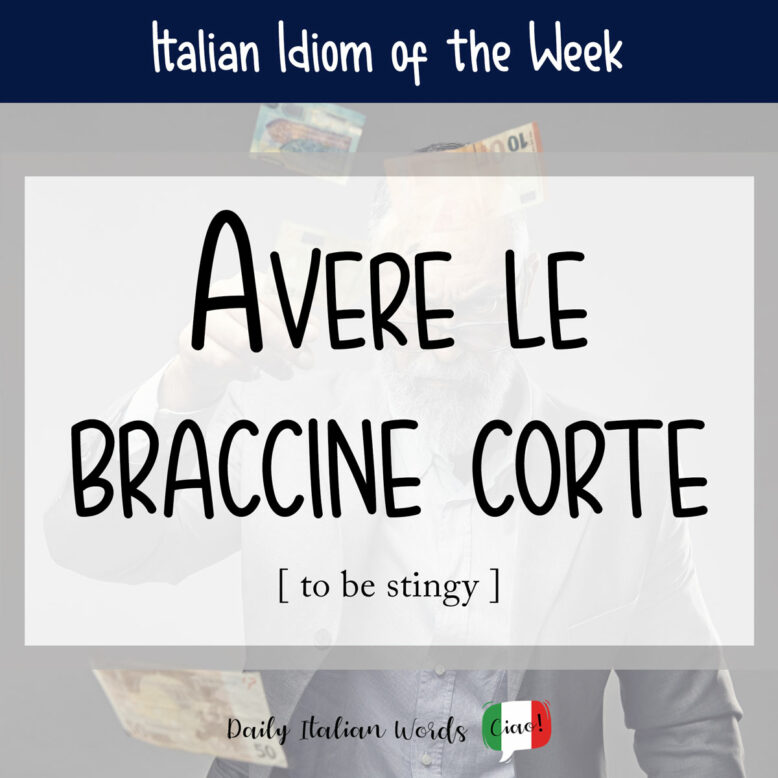Italians have many ways to refer to someone who doesn’t like to spend money. You might be called spilorcio, taccagno, tirato, or tirchio. But if they want to sound more poetic, they’ll use the idiomatic expression avere le braccine corte.
avere le braccine corte
to have short arms

Avere le braccine corte literally translates to “having short arms,” and contrary to what you might think, it has nothing to do with being unable to reach one’s wallet due to short appendages!
According to Firenze Today, the expression harks back to a time in Florence when fabric sellers measured cloth using the unit a braccia (by the arm). To make a profit, some sellers would use the arms of young apprentices, which were shorter than their own. This practice often caused disputes between buyers and sellers, leading to the establishment of a universal measurement known as the braccio fiorentino, which was precisely 58.32 centimetres long.
Hai sempre avuto le braccine corte!
You’ve always been stingy!

There are actually two variations on this expression: avere il braccino corto (“to have a short arm”) and avere le braccia corte (“to have short arms” but using the standard braccia – arms– rather than the diminutive braccine – little arms).
Luca ha il braccino corto. Non paga mai da bere quando usciamo.
Luca is very stingy. He never pays for drinks when we go out.
A lesser used idiomatic alternative is essere di manica stretta (literally “to have a tight sleeve”) or stretto di maniche (“tight-sleeved”). It is the opposite of the much more common expression essere di manica larga (“to have wide sleeves”), which is used to describe someone who is generous and indulgent.
Heather Broster is a graduate with honours in linguistics from the University of Western Ontario. She is an aspiring polyglot, proficient in English and Italian, as well as Japanese, Welsh, and French to varying degrees of fluency. Originally from Toronto, Heather has resided in various countries, notably Italy for a period of six years. Her primary focus lies in the fields of language acquisition, education, and bilingual instruction.


